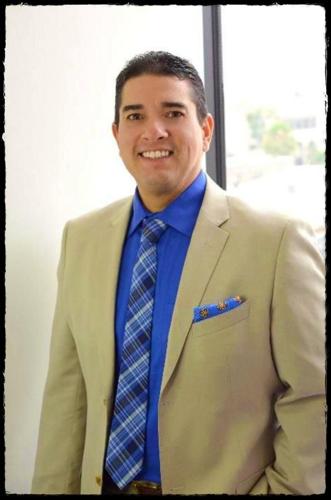October is Liver Cancer Awareness Month and Dr. Edward Mena wants to educate the Latino community on the importance of this health topic and its risk factors. Dr. Mena is a practicing hepatologist and currently serves as the Medical Director of the Pasadena Liver Center in California.
Latinos are the number one ethnic group in the U.S. with the highest prevalence of Hepatocellular Carcinoma (HCC), also known as malignant hepatoma, the most common liver cancer.
Dr. Mena said, that the Latino community is often unaware of the underlying risk factors that can lead to liver cancer, such as type 2 diabetes, obesity, and hepatitis C, all conditions that when properly treated and managed, can reduce the risk of hepatocellular carcinoma.
In 2019 California was among the top 10 states with the highest overall mortality for both liver cancer and chronic liver disease, according to a study by the National Center of Biotechnology Information.
“Fatty liver has now become the number one cause of cirrhosis,” Dr. Mena said. “Latinos are more predisposed to cirrhosis and when they are predisposed to that disease they are more predisposed to liver cancer.”
Dr. Mena received his medical degree from the University of Southern California, where he obtained his hepatology fellowship. Dr. Mena was also the Chief Resident at White Memorial Medical Center from 2001 to 2002. In addition, he is a nationally renowned physician in liver disease and liver cancer and has been active in the Hispanic health community for more than 15 years.
Dr. Mena is also the President and CEO of California Liver Research Institute, a nonprofit research organization, which focuses on the advancement of treatment and curing of all forms of liver disease, including hepatitis B, hepatitis C, fatty liver disease and liver cancer.
He is also a fellow of the American Association of the Study of Liver Disease (FAASLD). In 2019 Dr. Mena was awarded the Hispanic Health Leadership Award from the National Hispanic Health Foundation and the Healthcare Visionary Award from the American Liver Foundation 2020.
Dr. Mena said that education on liver disease is crucial for the Latino community. In many cases, the patients he treats are unaware they have the disease.
“The one good and bad thing about the liver is that it’s a very resilient organ, it can take a lot of punishment before you start feeling symptoms,” Dr. Mena said. “Unfortunately, when you have symptoms it’s because the disease has already advanced.”
Next month, Dr. Mena will be the speaker at the Hispanic Liver Cancer Patient education event sponsored by Eisai, leading global research and development-based pharmaceutical company.
Dr. Mena will discuss the importance of liver cancer awareness and answer questions from the audience on Tuesday, October 11. To register for the Liver Cancer event, visit www.amasuhigado.com. To learn more about liver cancer, visit www.liverfirst.com. The website is available in Spanish, English and other languages.
CALÓ NEWS interviewed Dr. Mena about Latinx lifestyle, liver cancer and prevention.
Responses have been edited for clarity and brevity.
WHY IS IT IMPORTANT FOR LATINOS TO BE AWARE OF LIVER CANCER?
Latinos are 2.5 timesas likely to have liver cancer than Caucasians and more than 60% of Latinos are diagnosed with liver cancer at an advanced stage, which means there is no cure. Sadly, Latinos often have modifiable risk factors for liver cancer, which means they could have done something to lower their risk and they often put off seeing their doctor until it is too late. That is why there is such a need for this education in the Latino community.
WHAT ARE RISK FACTORS FOR LIVER CANCER AND HOW DO THEY IMPACTTHE LATINO COMMUNITY?
Latinos, compared to the general population, more often have the underlying conditions that are risk factors for liver cancer: These are non-alcoholic fatty liver disease (NAFLD) otherwise known as “fatty liver” disease, obesity, hepatitis C and diabetes. What’s alarming is that roughly 45% of Hispanics have Fatty Liver disease and many do not know they have it or that it is linked to liver cancer. They do not proactively go to the doctor and ask for a liver screening. Unfortunately, Latinos who get diagnosed with liver cancer about 60% of them already have advanced disease.
WHAT ARE SYMPTOMS OF LIVER CANCER?
Often, there are no symptoms of liver cancer until the disease has progressed to a later stage. There are certain common symptoms of liver cancer. However, experiencing one or more of the following symptoms doesn’t mean someone has liver cancer but it does mean that person should get checked by a doctor as soon as possible. Some of those symptoms are losing weight without trying, loss of appetite or feeling full after eating a small meal, nausea or vomiting and a feeling of fullness under the ribs, it can possibly be a sign of an enlarged liver or spleen. Other symptoms can also be belly pain or pain near the right shoulder, swelling in the belly, itching and yellowing of the skin and eyes.
IS THERE HOPE FOR PEOPLE WITH LIVER CANCER, DIAGNOSED AT A LATE STAGE?
Yes, there are options for people diagnosed with even stage four liver cancer. There have been medical advancements that can effectively treat late-stage liver cancer patients. If you have liver cancer or are at high risk for liver cancer, it’s important to see an Oncologist or a Hepatologist that can evaluate all the options for you. It is also important to make an appointment with your Primary Care doctor or a hepatologist that can screen you for liver cancer.
WHAT TYPES OF DOCTORS CAN SCREEN FOR LIVER CANCER AND HOW IS IT DIAGNOSED?
If liver cancer is suspected, it’s most likely that a family doctor is the first to be seen. From there, you will get a referral to a specialist who identifies and treats liver diseases like a hepatologist, gastroenterologist or an oncologist who can confirm the diagnosis.
Liver cancer is diagnosed with screening or testing. Most liver cancers are found because symptoms send patients to their doctors. There are numerous tests a doctor can order after reviewing a patient’s medical history and exploring risk factors. If symptoms or the results of a physical exam suggest liver cancer, a few of the possible tests include imaging, ultrasound, computed tomography scans to get pictures of the liver and surrounding areas inside the body, lab tests to see how the liver and body are functioning, and biopsies, which is taking a small sample of the liver to test.
WHAT CAN LATINOS DO TO MANAGE LIVER CANCER RISKS?
Latinos who have diabetes should commit to regular checkups, get their family involved with healthy eating and exercise and take their diabetes medication as directed by their doctor. They also need to talk to their doctor about whether to get tested for the hepatitis C virus (HCV). HCV is a treatable infection and may even be curable. Treating HCV can help lower the risk of liver cancer. They also need to consult with their doctor about adopting a low-glycemic diet with rich plant-based foods like fruits, vegetables, whole grains, nuts and fish. For those who drink alcohol, the Centers for Disease Control and Prevention recommends moderate amounts and no more than one drink a day for women and two for men.
HOW CAN WE BETTER EDUCATE LATINO COMMUNITIES ABOUT LIVER CANCER?
What they can do is spread the word. They can tell their friends and family to get their annual checkups. They need to ask a doctor if they should be screened for liver cancer if they have any risk factors such as diabetes, obesity, or nonalcoholic fatty liver disease. They also need to talk to their doctor about diet and exercise changes that may help lower their risk of liver cancer and commit to following up with a doctor about their liver health.







(0) comments
Welcome to the discussion.
Log In
Keep it Clean. Please avoid obscene, vulgar, lewd, racist or sexually-oriented language.
PLEASE TURN OFF YOUR CAPS LOCK.
Don't Threaten. Threats of harming another person will not be tolerated.
Be Truthful. Don't knowingly lie about anyone or anything.
Be Nice. No racism, sexism or any sort of -ism that is degrading to another person.
Be Proactive. Use the 'Report' link on each comment to let us know of abusive posts.
Share with Us. We'd love to hear eyewitness accounts, the history behind an article.